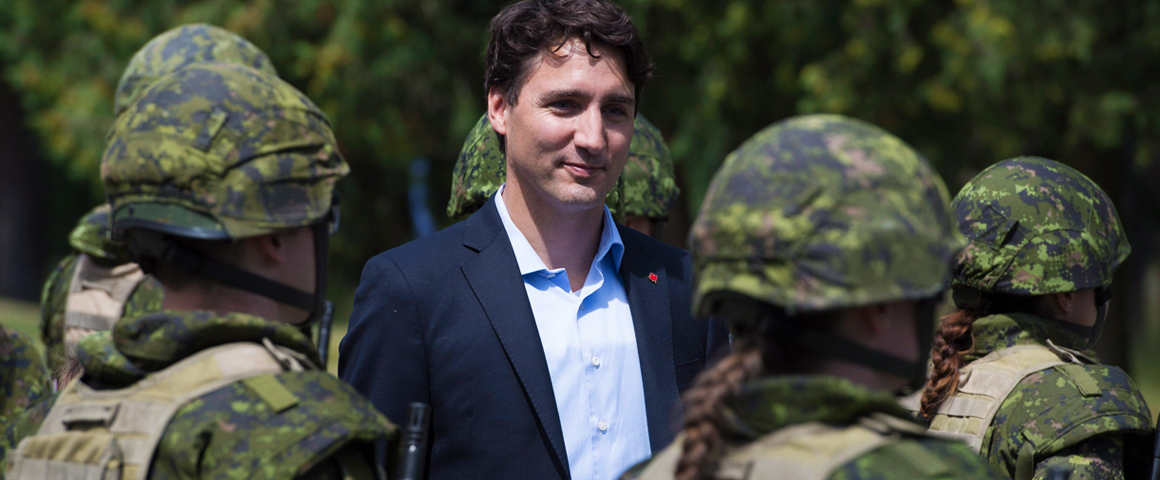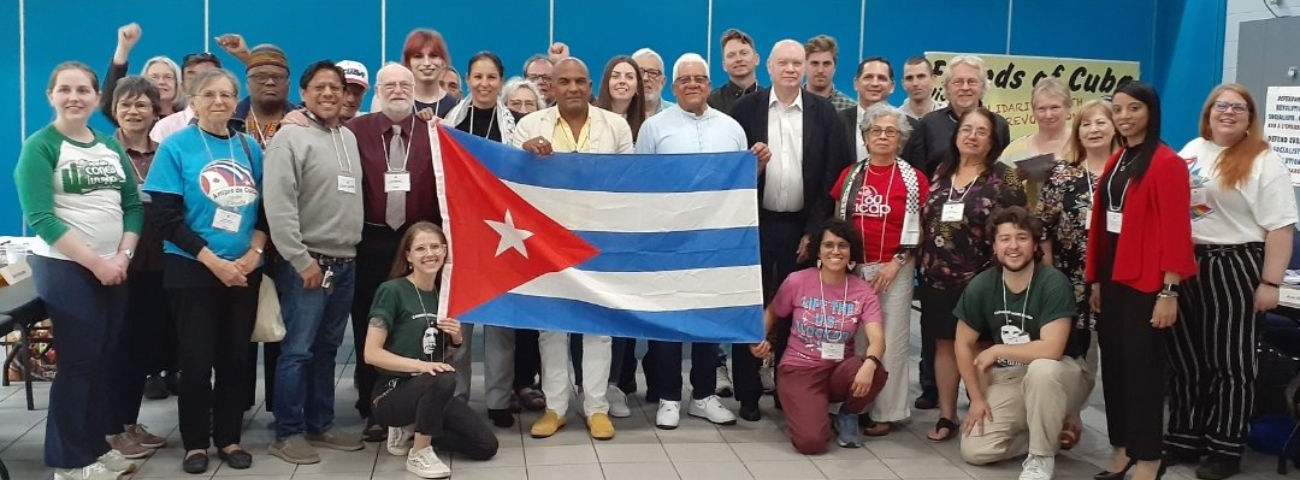Every Canada Day, the federal government spends millions of dollars on fireworks and parties, to promote the concept that Canadians are a peaceful family, living happily together in the “greatest country in the world.” Of course, this myth ignores the dire poverty facing many, the centuries-old oppression of Indigenous peoples, Quebecois, Acadiens, and racialized communities, the wide pay gap for women, and so on. When such realities are admitted, the claim is that we are all united around the goal of “overcoming the problems of the past”.
A key part of this unofficial Canadian ideology is that in a world of military conflicts and violence, ours is a unique country of peace. But while Canada did provide military units as United Nations peacekeepers in the past, as of April 2018, a grand total of 22 (yes, twenty-two) Canadian armed forces personnel are serving in UN peacekeeping missions.
The days of storming the beaches of Normandy to help defeat Hitler fascism (my mother’s favourite uncle was killed by a Nazi sniper two months after D-Day) are long past. Today, the Canadian Armed Forces are heavily integrated into the US/NATO military machine, which has elbowed the United Nations out of the picture.
“Peacekeeping,” which was always a problematic term at best, has long been replaced by military operations designed and led by the major imperialist powers and their allies (or paid servants). The last significant occasion on which Canada refrained from joining such a “coalition of the willing” was the 2003 US/UK invasion of Iraq, when huge numbers of protesters made it politically impossible for the Chretien Liberals to participate. Even then, a small number of CAF personnel were involved in the invasion.
On July 1 this year, here are some examples of Canada’s real role in global affairs.
Breaking the pledge to refrain from pushing the borders of NATO closer to Russia after the break-up of the Soviet Union, the US-dominated alliance has signed up a dozen new members across central and eastern Europe since 1993, and even Turkey. Canada has been an enthusiastic partner of the USA in putting the military squeeze on Russia, a country which saw western interventions after the 1917 Revolution, followed by Hitler’s invasion (which cost some 27 million Soviet lives), and then decades of Cold War nuclear threats.
Canadian troops are currently taking part in the NATO mission in Latvia, right on the Russian border. From June 3-15, the US-led “Exercise Saber Strike” was held in Estonia, Latvia, Lithuania, and Poland, including 18,000 soldiers from 19 different countries, “designed to enhance readiness and cooperation between NATO Allies and regional partners.” Canada is also backing the pro-fascist and virulently anti-Russian government of Ukraine. Is all this “peacekeeping”, or preparation for war against Russia?
Canada is training troops in the west African country of Niger, and preparing to send troops to Mali, as part of a wider campaign by imperialist France to retain its position of strength across its former colonial empire. Those who think the operation in Mali is to combat Muslim extremists should recall that when the US and its NATO allies defeated the Ghadaffi government of Libya in 2012, Canadian fighter-bomber pilots termed themselves the “ISIS air force”, a grim reference to the devastating geo-political outcome of that intervention.
Canada’s current military spending is about $20 billion annually; exact figures are almost impossible to extract from official sources. That figure is already 14th in the world, according to the Stockholm International Peace Research Institute (SIPRI). But under pressure from the US, Canadian Defence minister Harjit Sajjan announced recently that the budget would jump by 73%, to $32.7 billion in 2026-27. The Liberals have projected a new 20-year military policy for “a Canada that is strong at home, secure in North America and engaged in the world.”
Canada is preparing to buy 88 advanced fighter-bombers (much higher than the 65 the previous Harper government had planned), to replace its current fleet of 77 CF-18 planes. The new jets will need to operate “seamlessly” with other NATO partners, at a cost of $15-19 billion. Canada is also upgrading its naval forces, which could total another $30 billion or more. The increased spending will boost Canada’s military budget up to 1.4% of GDP by 2024-25, from the current 1.2%, ultimately on the way to satisfying NATO demands for member countries to devote 2% of GDP for the military.
In other words, far from being the “military wimp” of right-wing myth, Canada is an increasingly significant military partner of US imperialism, highly integrated into NATO’s command structure, and distancing itself from any measure of United Nations oversight. On a wide range of international issues, Canadian foreign policy is now tightly aligned with US positions, such as bitter opposition to the democratically elected government of Venezuela, antagonism towards Russia and China, and a refusal to criticize Israel’s apartheid anti-Palestinian policies. This close-knit relationship may be challenged by the increasingly isolationist character of the Trump administration, but in the long run, the global capitalist class led by US imperialism will gravitate towards stronger coordination of military policies.
Meanwhile, here at home, the Canadian military is an important link in the growth of far-right, even pro-fascist political forces. Even while any genuine independence from US foreign policy positions is being gutted, such forces are scapegoating a wide range of alleged “threats” to Canada: Muslims, immigrants, refugees, Jews, communists, trade unions, environmentalists, indigenous peoples, the LGBTQ+ community, and so on.
Like the election of Doug Ford as premier of Ontario, the emergence of organized racist groups within the Armed Forces is a dangerous signal that politics in Canada may be turning towards fascist demagogy. The “Golden Boys” are functioning inside the armed forces, a network of thugs, immigrant-bashers and pro-fascists. Similarly, the racist online attacks by military personnel against Defence Minister Sajjan prove that this section of the Canadian bourgeois state is home to white supremacists who oppose any shift towards diversity and progressive social change in Canada.
On Canada Day 2018, it seems that the image of a country of peacekeepers, dedicated to making the world a better place, is hopelessly naive at best, and wilfully ignorant at least.




